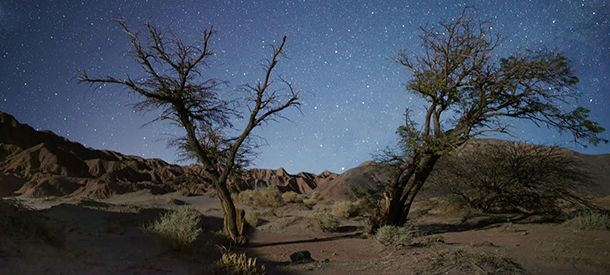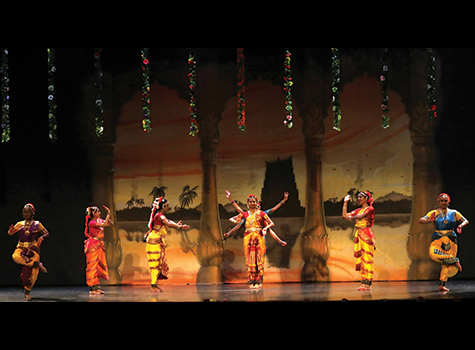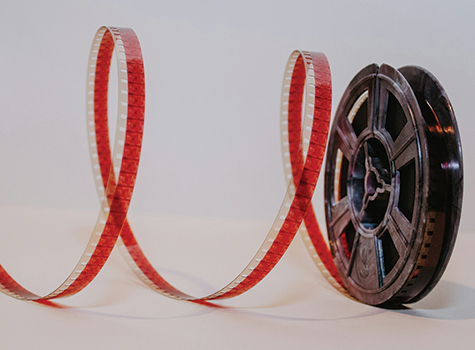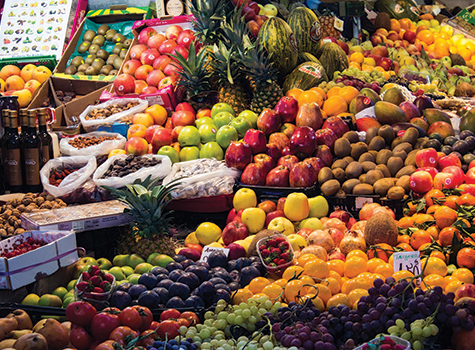
An image from the film Cielo(courtesy: Full Frame Festival)
The 21st annual Full Frame Documentary Film Festival returns to Durham, NC on Thursday April 5 through Sunday April 8, 2018. It is the country’s largest documentary film festival with dozens of films, along with many parties and other events. To date, they have shown over 2000 documentary films.
I will offer here a summary of a few films whose descriptions caught my eye, though I have not yet seen any of the films.
Forty-two new documentaries were selected from almost 1,800 submitted. Twenty-two additional films were invited. In addition, Jehane Noujim, documentary filmmaker of films like Control Room and Startup.com, is being honored and four of her films being shown, and filmmaker Joe Berlinger is curating eight films on the topic of “Crime and Punishment.”
There usually seems to be a significant number of films related to India. This year, Jehane Noujaim’s film Rafea: Solar Mama is being shown as part of her tribute. Illiterate women from around the world are trained in India’s Barefoot College, designed with Gandhian principles. Rafea, a Jordanian Bedouin, goes to India to spend six months to learn to become a solar engineer, in the hopes of electrifying her village. Beyond her educational and skills goals, she has to fight stereotypes and discrimination.
The Mauritania Railway: Backbone of the Sahara (MacGregor) sounds like may bring visions of rural travel in parts of India. It’s a short film that was made with the camera atop a railway car that is the connection to the outside world for people living in different parts of the Sahara Desert.
There are a number of films about social justice and activism. Jack O’Dell was a radical thinker who worked closely with Martin Luther King, Jr. until the Kennedy administration forced a separation. The Issue of Mr. O’Dell (Rami Katz) explores the story of 94-year-old Jack O’Dell, and continues through to his thoughts on Black Lives Matter.
The only thing surprising about the coverage of the last Presidential election is that there aren’t more films – but, of course, the election was not that long ago. In Our New President, director Maxim Pozdorovkin explores the election through the lens of Russian news coverage. Charlie Lyne’s Personal Truth delves into the “Pizzagate” scandal where manufactured utterly false news led to a shooting in December 2016 at a restaurant.
Deferred Action for Childhood Arrivals (DACA) about “dreamers” who entered the U.S. illegally with their parents through no fault of their own has been in the news quite a bit lately. Directors Anayansi Prado and Heather Courtney describe three DACA students, banned from receiving in-state tuition at Georgia’s state universities, in their film, The Unafraid.
Full Frame always features a wide variety of themes in the films that it showcases. There are a number of fun films focused on education. In Laura Nix’s Inventing Tomorrow, six teenagers from around the world compete in the largest international high school science fair. I have a background in math and enjoy seeing its connections with the arts. Bending Lines: The Sculpture of Robert Wiggs (Peter DeHart and Allison Bohl DeHart) describe an artist who draws inspiration from nature’s variously exhibited geometries, from the repetition in pine cones to cracks in dried mud and beyond.
In Alison McAlpine’s Cielo, the expansive starry skies as viewed from Chile’s Atacarna Desert provide the backdrop to a poetic film about a “conversation with the stars” amongst those who live in the desert and scientists, reaching out perhaps for different reasons to the cosmos. Another gorgeous location, the Italian Alps, is the setting for Chiara Campara and Lorenzo Faggi’s Tempting Promises (Le allettanti promesse). A small border village between Italy and Switzerland, Esina Lario, welcomes the international Wikipedia community for their annual conference – but does 21st century technology win the day or is it met with darker reactions in this small locale?
I always look forward to four solid days of memorable and impactful films.
The best way to attend Full Frame is to purchase a pass, and this year again some classes of passes sold out very quickly (they went on sale on Valentine’s Day). At press time, several classes of passes were still available. There is an intriguing new category, the Sunday Pass, for only $25. It allows one admission to four films on Sunday and access to the “last minute line” for Sunday films.
Tickets for individual films will be on sale on March 29 and can be purchased online, by phone, or at the Duke University Box Office. Sales end two hours before showtime and cost $16 with a $2 discount available to the Duke community, students, military, police, firefighters, and teachers.
There are always free events, including some panel discussions and Friday and Saturday night outdoor film screenings of films from the previous year’s Festival. These screenings are often particularly good for families who are welcome to picnic and enjoy the showing at Durham’s Central Park just a few blocks from the Festival.
It’s important to keep in mind that many films do sell out. If there is a film that you really want to attend but is sold out, there still may be hope. You should plan to go to that film’s “last minute line” at least 30-45 minutes before the film is scheduled to start. Often a limited number of tickets are available for $15 (cash only). Also, some of the invited films are usually shown at multiple times, and some of the films chosen for awards reprise on Sunday afternoon. The crowds significantly thin after lunch on Sunday, so tickets should be readily available for those encores.
The Festival features over a half dozen venues, mostly in and around the historic Carolina Theatre in downtown Durham at 309 West Morgan Street. Theatres range in size from 50 to 1000.
Because films are shown in parallel, it may very well not be possible to see all that one may want to see. Some films are ultimately released for a theatrical run or perhaps to be shown on television, but this can be months or even a year or more later. Many films only play the festival circuit.
Insightful film discussions, relaxation at parties and around the venues, and dining at the growing number of good restaurants in downtown Durham are all great draws for the Festival. Full details and complete schedule of events as well as film descriptions are available at www.fullframefest.org.



